My parents have been in LA for over 50 years and still don’t speak English. As a career food & rock writer, it’s easy to forget that the language I’m known for working in wasn’t my first.
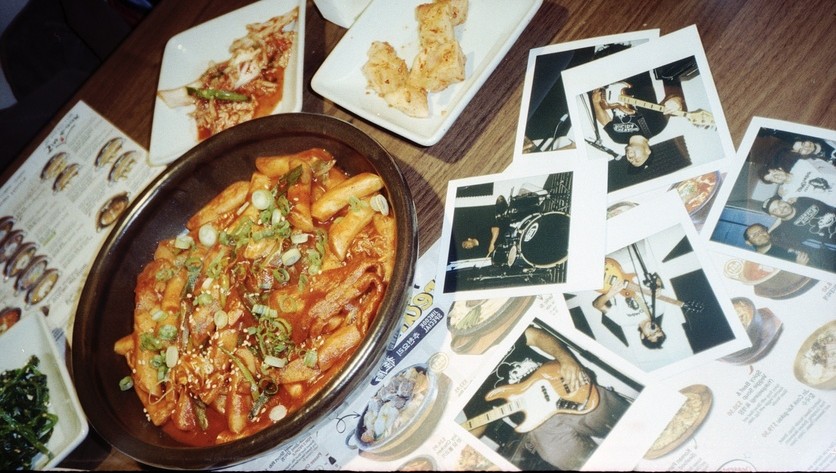
I never challenged myself to write in Spanish up until recently, which is part of why I started my band, Foolanos. I’m 36 right now, getting ready to play my first-ever show this weekend as a lifetime punk. Mentally, I wanted to challenge myself by only writing and singing songs en Español. It’s a very strange thing for me, especially being born with a speech impediment.
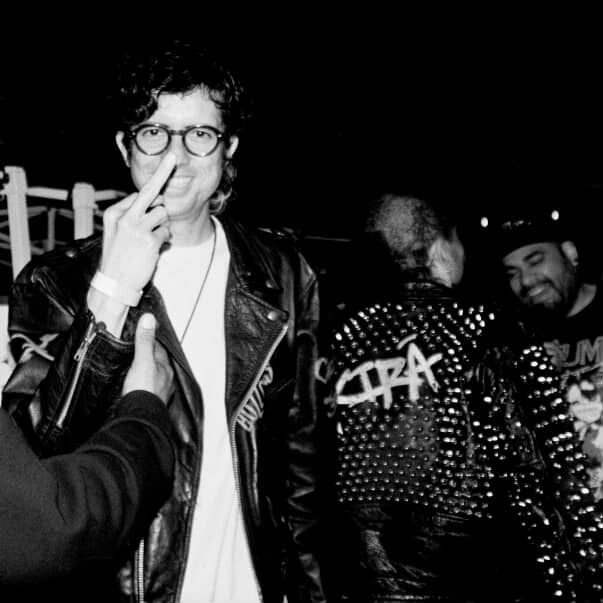
When I first started writing, there used to be a cartoon on Nickelodeon called Doug. Every episode started & ended with a diary entry, and I started mimicking the process in third grade. I embraced the blank page, so to speak; not fearing it, but fascinated by the mark I could leave.
When you’re a journalist by profession, you commodify your passion. We’re lucky to write and get paid for it, but we can also lose touch with the romantic side of English.
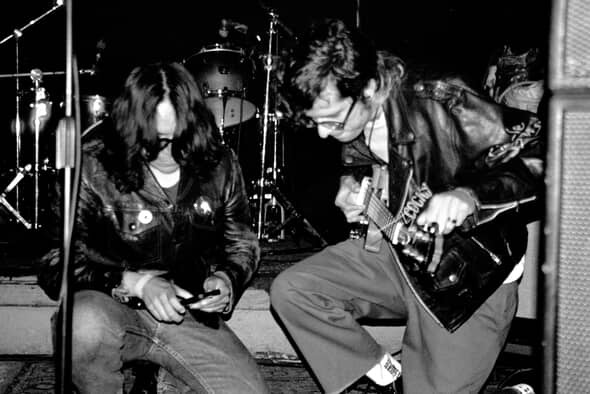
Artificial intelligence has been on the precipice of every professional writer’s mind right now, from journalists to screenwriters…
When you publish this story online, you’ll be the only writer who has ever asked me about code switching & growing up bilingual. If someone then googles, “Is Javier Cabral bilingual,” or “Does Javier Cabral speak Spanish,” your article would come up. Now, before AI, in the way things have worked for a long time, someone would have clicked on Dead Relatives Magazine, read the story or searched this piece for the answer, and you’d receive a registered hit from the website visit. Publications can use this data as proof of visitors to pull ads from companies, small businesses, or Google ads, unless they’re a non-profit like Wikipedia or Dead Relatives.
However, currently, there’s an AI overview whenever you search for anything. It presents information that others took the time to research & create, without requiring the reader to click on the source.
Because the answer is presented on a silver platter, most people will read the AI answer, confirming that I also speak Spanish, without your name or this publication you created attached… Even though your mental energy created that question & contribution to accessible information. We had a very serious meeting between the 3 heads that run LA Taco last Friday because traffic has been reducing for everyone, and AI is here to stay.
But our edge as journalists is exactly what you’re doing, man – niche, creative presentations that AI cannot replicate. Nothing could ever replace you or me. Some of our biggest stories have been punk-related, and it’s because it’s such an underground, gate-kept community that there’s not much information out there that AI can pick up on, at least for modern times & bands.
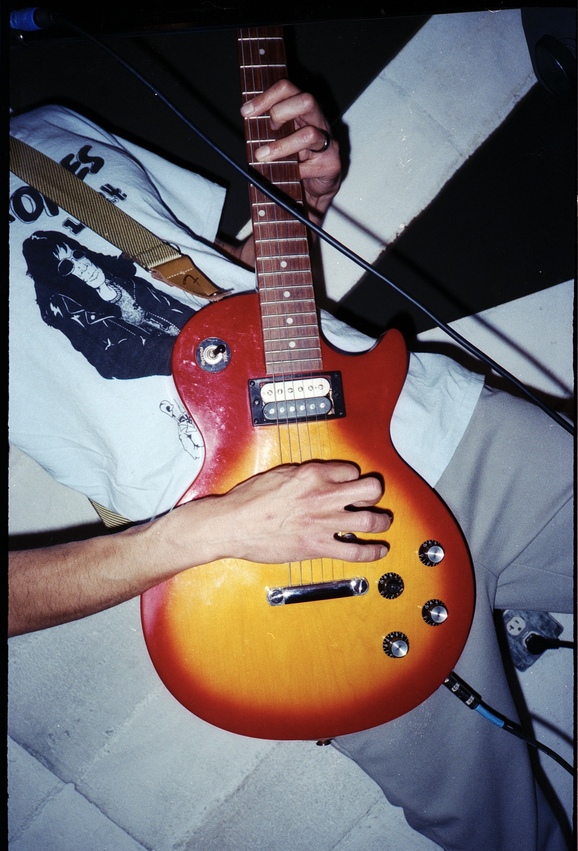
LA Taco is an independently owned and operated resource built for Los Angeles, by Los Angeles, to bring readers news and culture stories through incredible eats from all across the vital, electric metropolis.
We’ve been around for 20 years now, delivering raw, street-level journalism from all corners of LA County to our readers, supporters, members and partners.
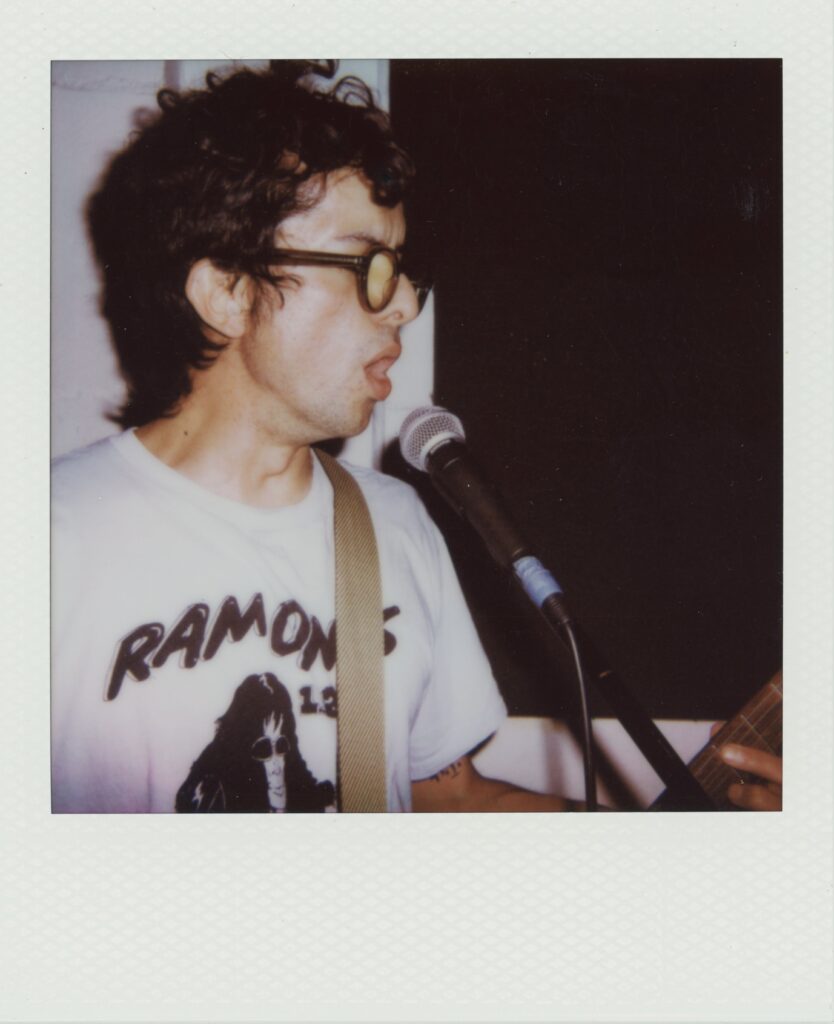
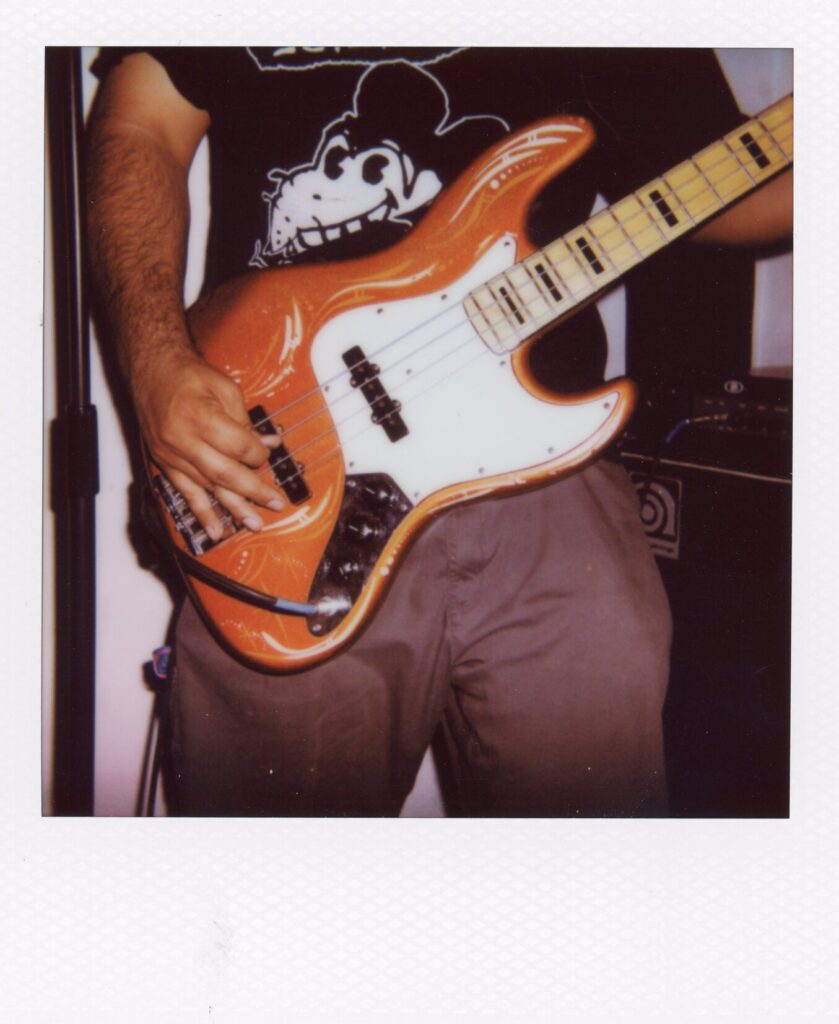
It started in 2005 as a website that celebrated graffiti, tacos (when tacos were still illegal, because it wasn’t until 2018 when food trucks were decriminalized), and cannabis (which was also “illegal” back then).
LA Weekly had been known as the city’s arts/culture newspaper since the 80’s, but was pretty much told off by its own community in the late 2010’s after selling to investors with conservative backing. They fired the majority of their staff, and in response, tons of writers took a stance; Henry Rollins (of Black Flag) even gave up his personal column in the paper. After that, LA Taco rose to the occasion to be the last standing alternative publication for LA. A lot of people look up to us for news and culture stories, because they know that our opinions can never be bought, which is why independent publications are so important.
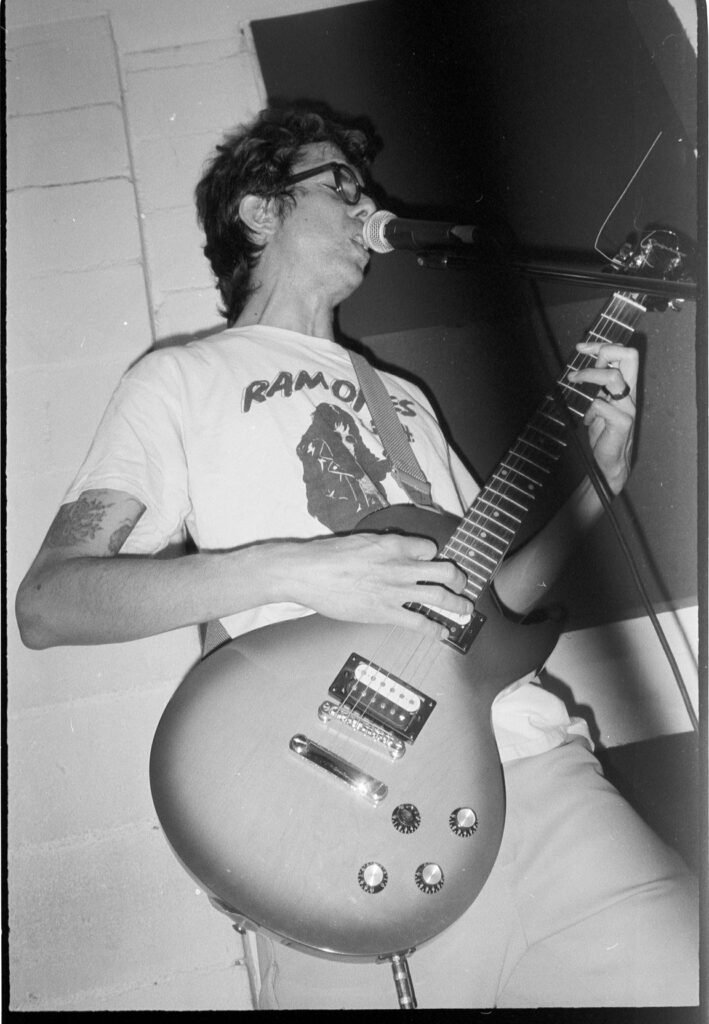
So we’re a news publication, but at the same time a food website to tell you where’s best to eat. We publish opinions, investigative reports on corrupt police/politicians and abuses of power… But also cover rock & artistic happenings around the area. The reason why we’re so diversified, but also why people love us, is because it’s a concept that could only really exist in LA.
I’ve been the editor-in-chief of the publication for 6 years, and beyond finalizing works before publishing, part of my job is scouting new writers. I’m willing to say that at least 75% of recent stories published were written by people who weren’t formerly writers – I just plucked them from social media, seeing that they were passionate about a subject, and asked if they’d like to write a piece for us.
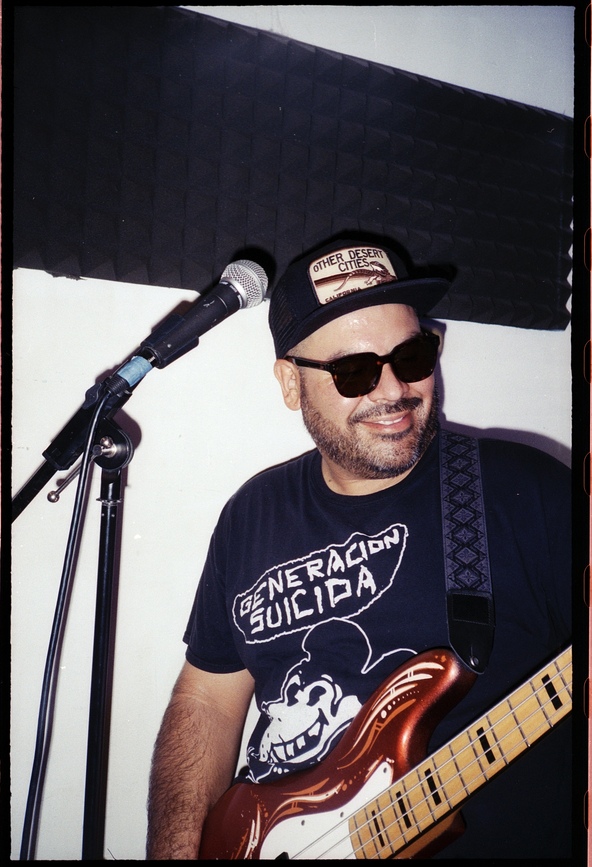
I think that’s the ultimate move as an editor, and something hardly anyone in media is willing to talk about. There’s always a sense of ecosystem and ego behind being a writer, because your efforts eventually get you to a level where you can give paid work to yourself and your team. But as an editor, you always have to pay it forward to young & new voices; let them shoot their shot and give their reflections on life, give the youth a chance to be seen & heard. That’s really the only way to keep things fresh, man. It’s easy to go back to the same writers because there’s a reason why they’re known & liked for their work: personalities, reach, range of experience… But there’s a Golden Rule to writing that I always try to work by:
It’s never about the writer or person creating the journalism. It’s always about the subject, and I feel like that’s been lost.
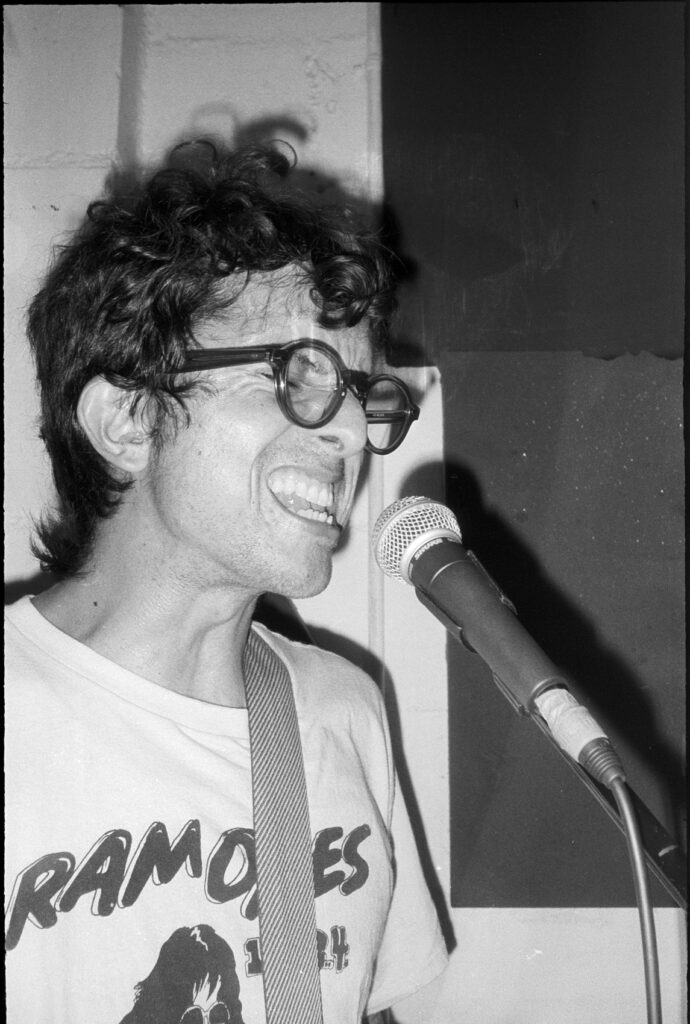
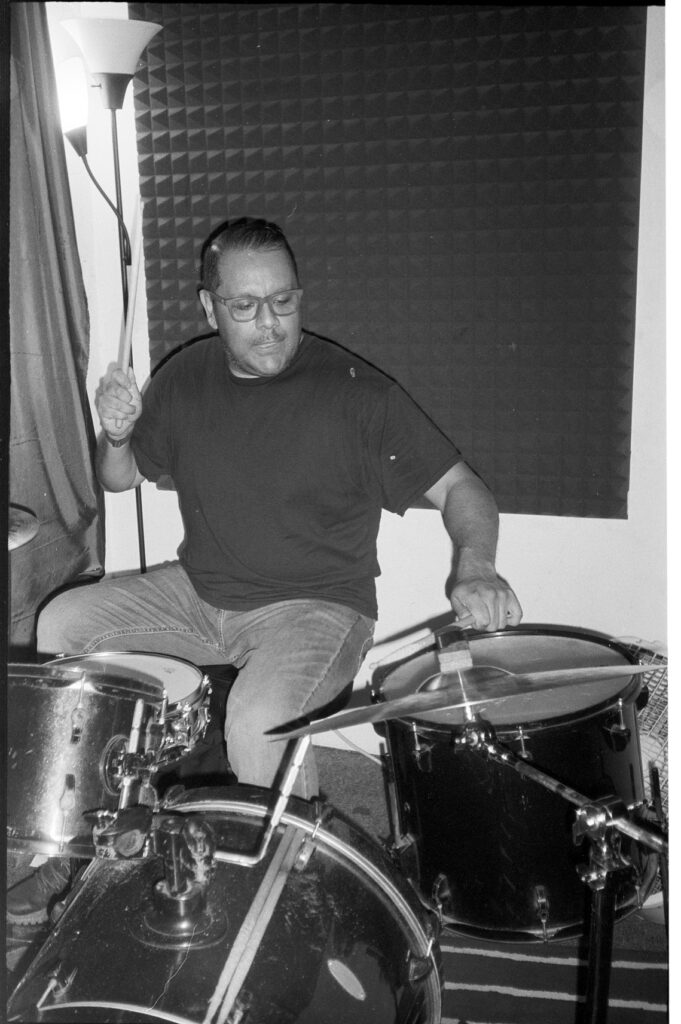
Punk, food, and journalism all intersected for me through my mentor when I was still in high school. Rest in peace to the only food critic in the world to win a Pulitzer Award – Jonathan Gold.
I always hated school. I didn’t really have friends there and didn’t feel a need to make any, so I pretty much sat in my chair & stared at the wall every day, counting down the minutes until I could leave. Instead of hanging out, I ran around town going to punk gigs, blowing the little money I could save on f*cking banh-mi. There was a lot of cheap food back then – with 10 bucks you could feast on tacos, dumplings, falafel… So many filling and amazing options. Eating out is almost a luxury now.
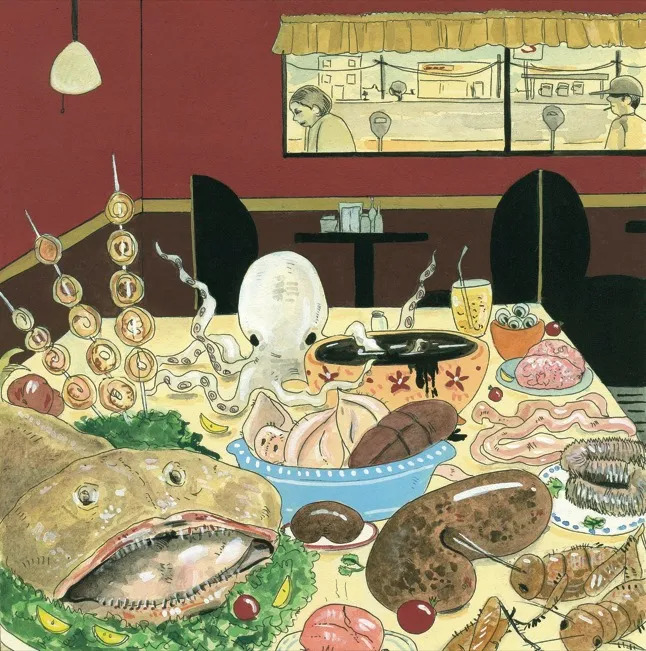
Back then, you would have to read LA Weekly to find out what bands were coming from out of town. Gold was a recurring writer for the paper, a punk from the 80s, combining all the context that informed his thinking into food reviews. I remember one older critique of Oki-Dog in Mid City somewhere; he wrote about this pastrami-hotdog-burrito thing on the menu, but also made it about The Germs and how they used to bring friends there after sets. It was all the context of living and having lived punk rock that made his articles so special. I looked forward to reading his work every week. Then one day it just hit me:
What’s more punk rock than getting paid to eat?
Everyone around me was deciding on majors for college and taking AP classes, while I was barely passing. Hell, I barely graduated. I was coming from a very nihilistic, f*ck everything, anti-todo headspace. I really did not care, and figured if someone else could make food their living, then I could too. So I sent the guy an email and straight-up asked him, “Hey, how can I do what you do?” I was 16 years old. He responded and, since then, kept me under his wing. A year later, I made my first hundred bucks writing about Latino Christmas foods.
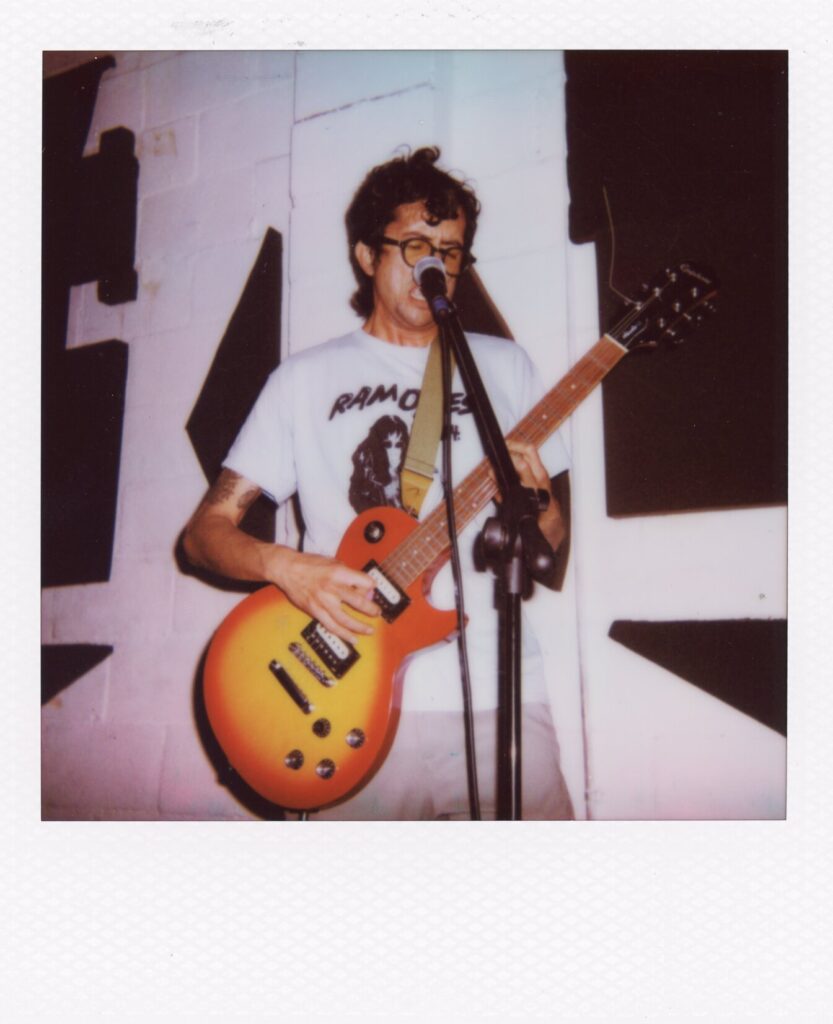
I went into writing knowing that by no means was it a way to get rich, but at least a way to help pay my bills. On the horizon, a potential to make a living for myself. Along the way, I also realized that people will pay for your knowledge on food, because everyone always wants to know where the best eats are, whether traveling or local.
Already writing, I dropped out of community college because the landscape was changing so fast. Social media was coming in & everyone predicted blogging was gonna take over journalism. I started pitching stories to publications under the guidance of Gold, and entered my first real relationship soon after. We decided to move in together, and I was scared to make rent since I still lived with my family. But it was now or never & I haven’t looked back since.
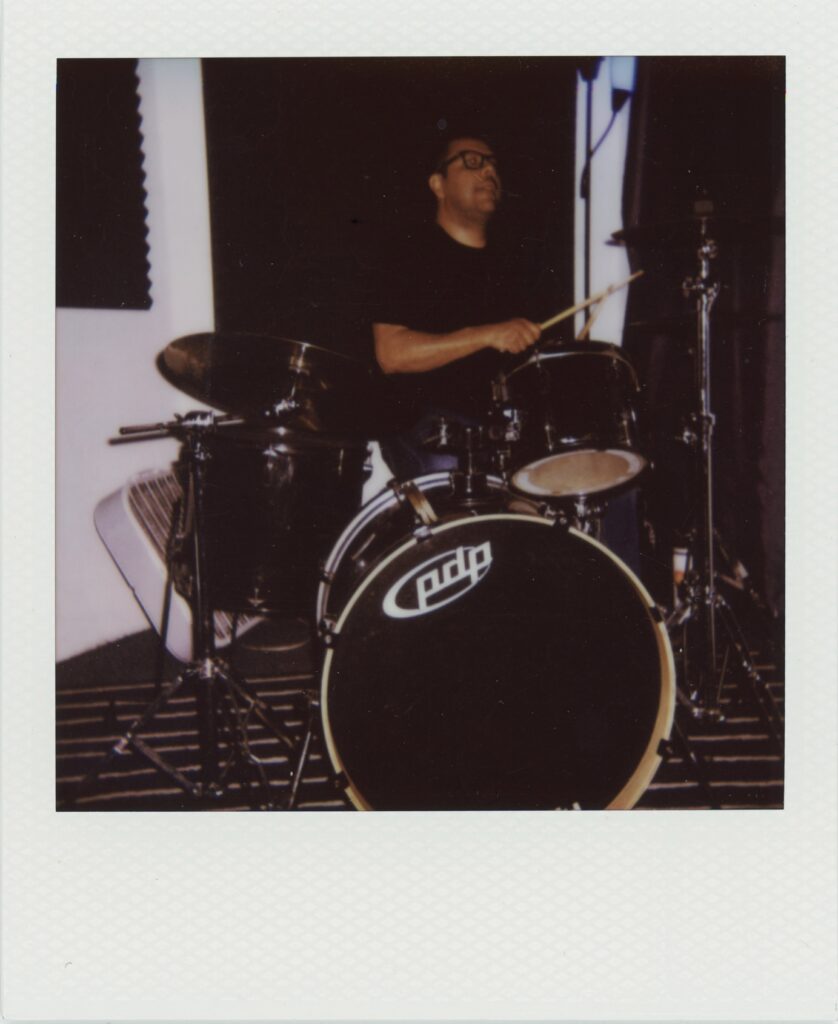
The purpose of journalism and the creative process is not to make friends or network for clout. It’s to report on what’s happening and say what needs to be said.
In our city, as in many others, sometimes people in power do shady sh*t. And we cover it because that’s what our platform has come to stand for.
We receive a lot of private messages from other publications & figureheads, thanking us in private for our takes and for publicizing them. Because who else would? Everyone’s afraid of ruffling feathers because it’s almost impossible to get sponsors when you speak your mind. But we live & die by our punk values and thank our supporters for allowing that. Remember the Goya Foods controversy? Over their CEO supporting the border wall? Just a couple days before that, they approached us with a sponsor deal for 30k. Not an hour after the money goes through and our first promotional tweet airs, they’re giving a pro-Trump speech over at the White House. We sent the money back, emailed them F*ck you, and published an article about it. So we do put our money where our mouth is, even if it negatively affects us, which can and could be our downfall.
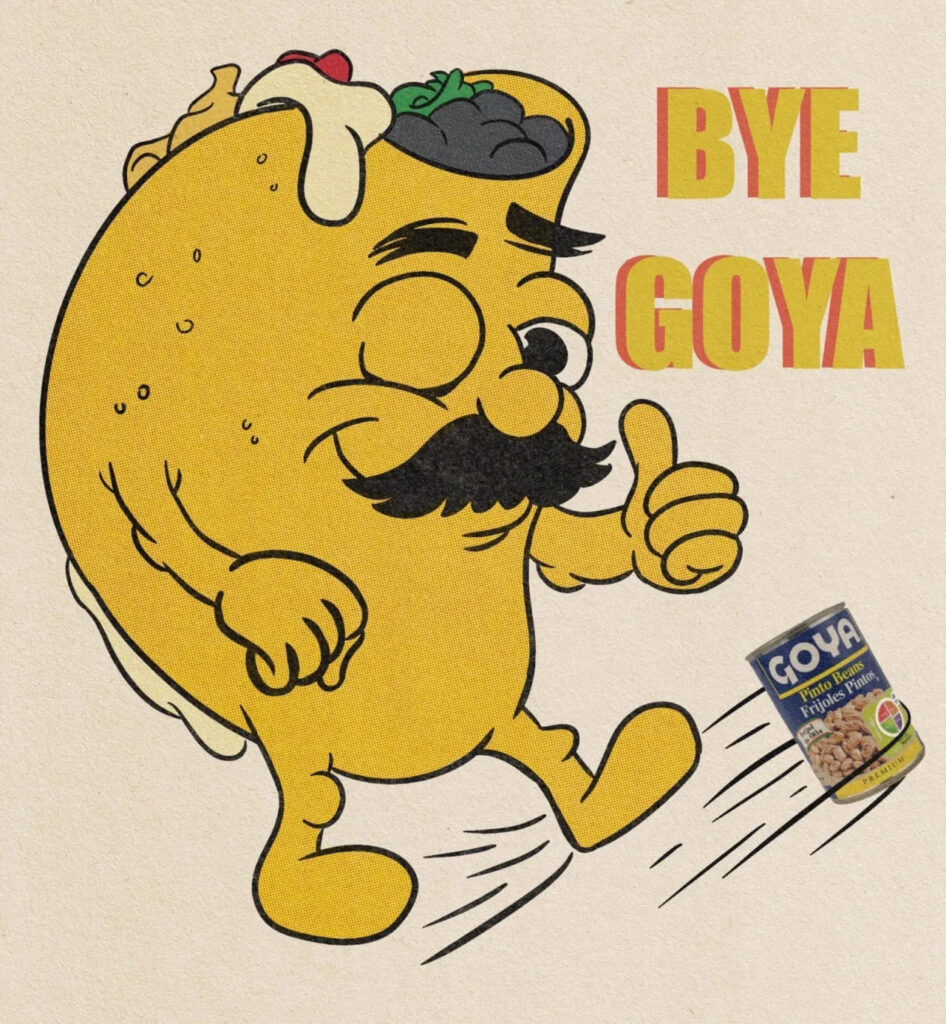
One thing that has been very successful for us, which is something no one else dares to publish, is anti-Dodger sentiments. Understand that everyone loves and rides for the Dodgers here, but they’ve done some horrendous things, like kicking out whole neighborhoods of families in Chavez Ravine to build their stadium during the 40’s. They come across as hometown heroes, but they’ve appeared in the White House, shaking hands and laughing at Trump’s jokes – wake up, people. It’s all corporations. This extended team of billionaires does not represent you!
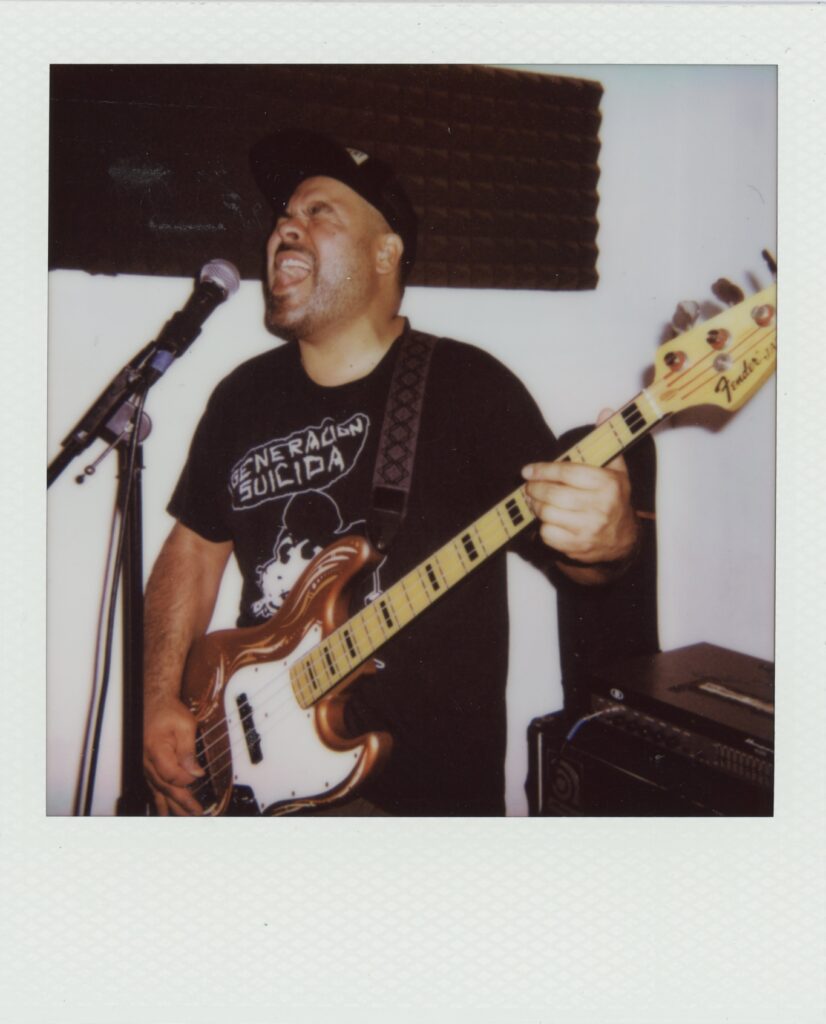
East Los Angeles is such a misunderstood neighborhood. In the media it’s portrayed as lowriders, cholos, and drive-by shootings, which are all true happenings. And if you make it out of there as a “successful adult” (whatever the f*ck that means nowadays), you’ll always be connected because it’s a marginalized community where only the strongest survive. I had guns pulled on me when I used to be a little tag-banger. And two years ago, one of my little cousins was shot and killed in a drive-by at just 22 years old.
I feel like a lot of people claim it, but they’re actually from a relatively “eastern” LA, like Montebello or Boyle Heights. To actually be from unincorporated East Los; to be able to name the gangs by their full names, to see people you went to school with become additions to the stereotypes, to drive down the roads and have a dangerous, sad, or celebrative memory behind every other cross street – it’s a special, special experience and as writers, we have the power to write about those experiences in stories and videos.
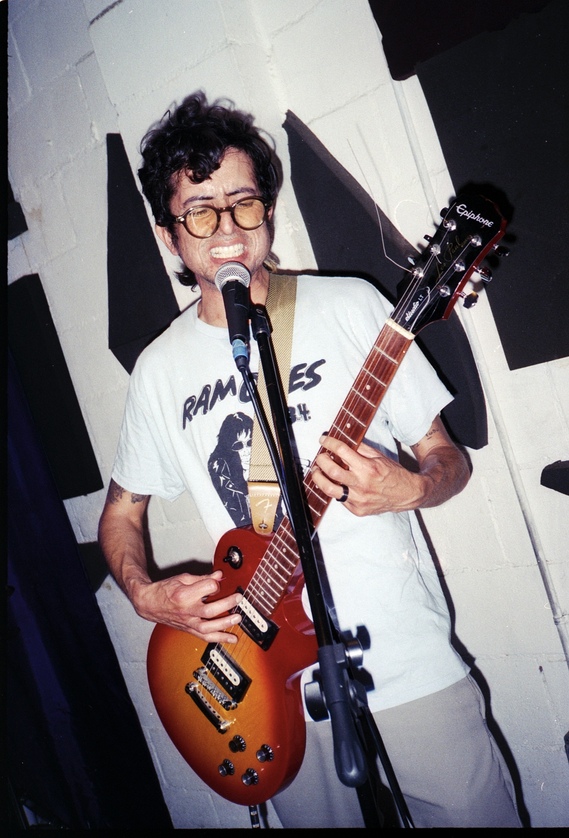
I grew up without a house for a long time. We threw beds in the back of my father’s furniture store, illegally, because we lost our home. I was lucky enough to have the punk scene – the loud music, the aggression – to be able to take out my frustrations as a form of therapy.
We normalize a lot of drug use because it’s an epicenter of dysfunctional families. But at its core, where I grew up is a cluster of beautiful, hard-working people who don’t have anywhere else to go.
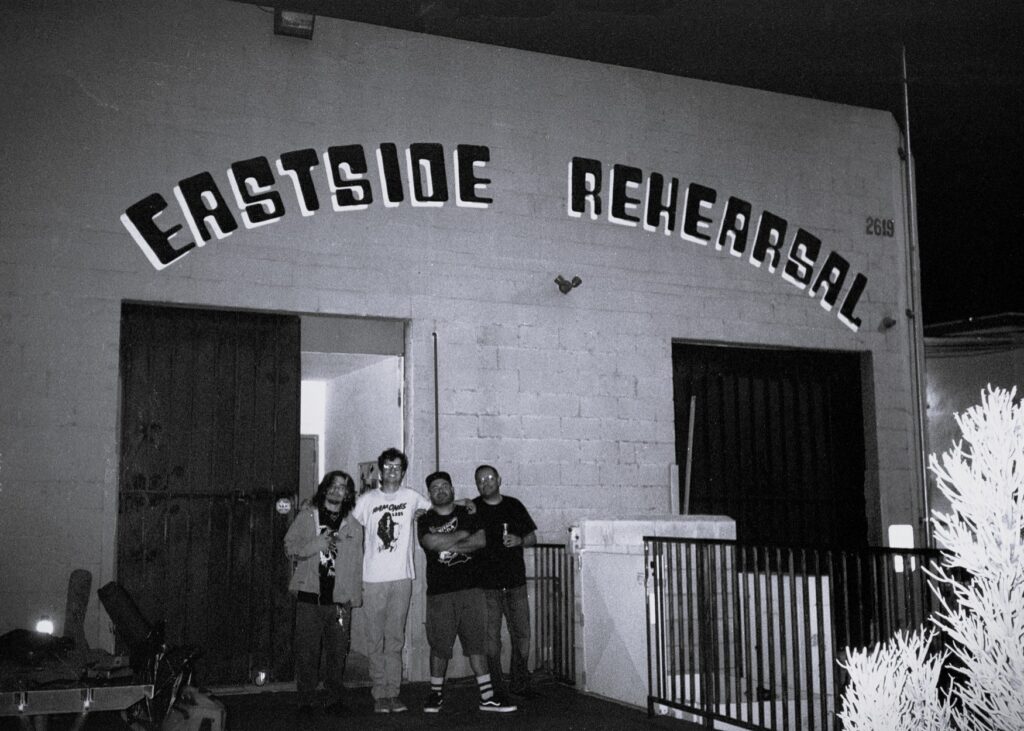
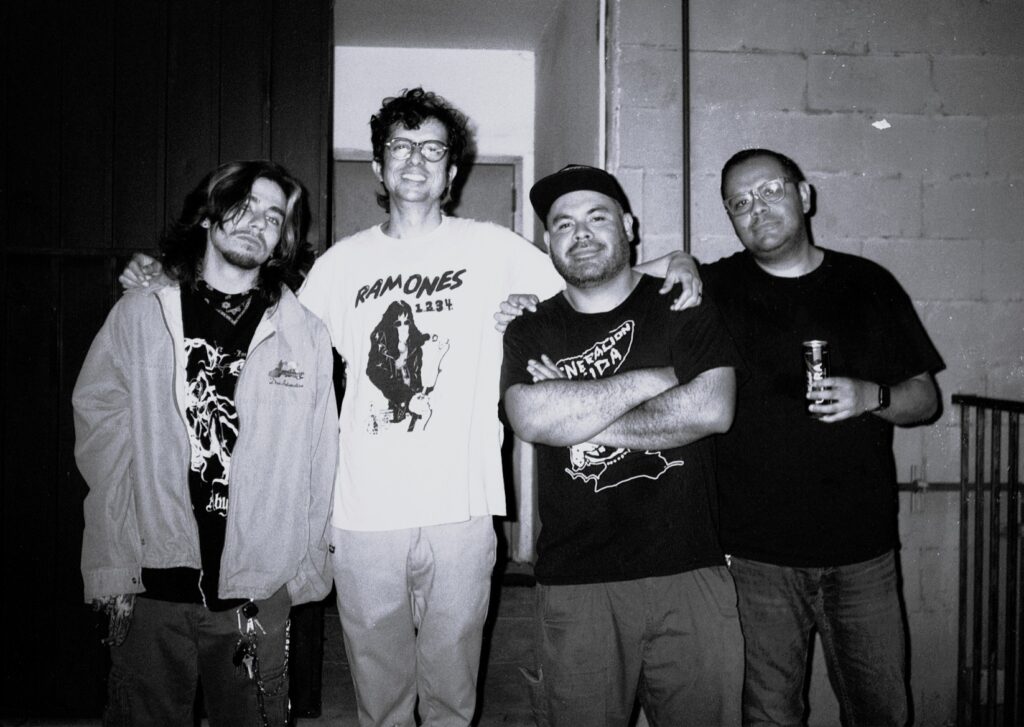
The first and most direct way of supporting journalism is – if you love a publication, subscribe to it. They usually have really affordable options. Yours is what, $15 for a monthly physical copy? That’s the price of one f*cking beer at Dodger Stadium… For LA Taco, our lowest tier is six bucks a month for ad-free browsing & a bunch of discounts at taco spots. For a little more, you can get some merch out of it.
But I feel the best way to support journalism as a whole – and it’s crazy I’m saying this, but this is the state of things right now – is by just reading stories. If you’re scrolling on Instagram, & you see an article or video that catches your attention? Don’t just be satisfied with the headline, enrich yourself and click through to read the who, what, when, where, why, and how of that story. Reading and staying educated allows you to contribute to the narrative. Stay informed & play a part in what’s happening around you.
-Javier Cabral for Dead Relatives.